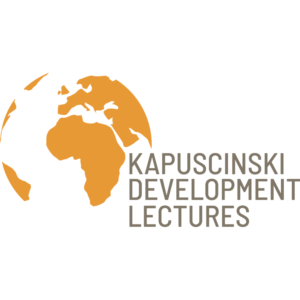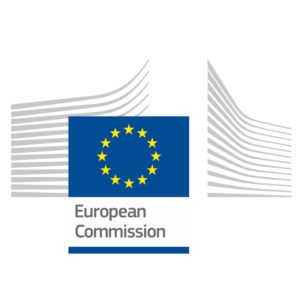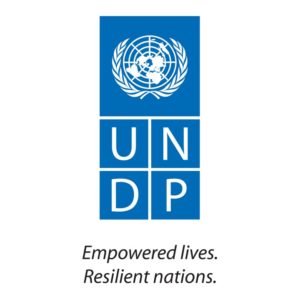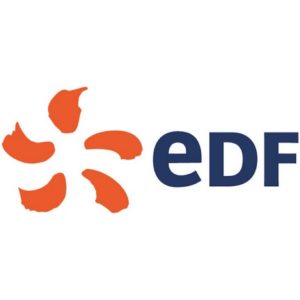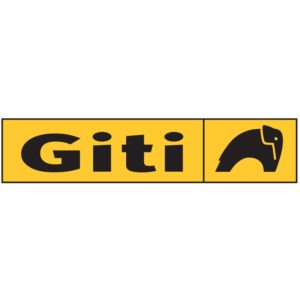Thank you for attending ICSD 2021!
You can watch the recordings of all our plenary sessions in the YouTube playlist below. Subscribe to our newsletter or follow ICSD on Twitter for updates on conference proceedings. See you next year!

You can watch the recordings of all our plenary sessions in the YouTube playlist below. Subscribe to our newsletter or follow ICSD on Twitter for updates on conference proceedings. See you next year!
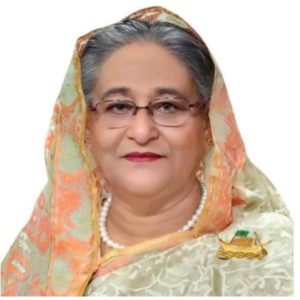

Sheikh Hasina, the Prime Minister of the Government of the People's Republic of Bangladesh, assumed the office on 7 January 2019 for the fourth time after her party Awami League won the December 30, 2018 parliamentary elections. Earlier, she served as Prime Minister for three terms: 1996-2001, 2009-2013 and 2014-2018. Sheikh Hasina was also the Leader of the Opposition in the 4th, 5th and 8th parliaments.
Sheikh Hasina was born on 28 September 1947 in Tungipara in Gopalganj district. She was the eldest child of Bangabandhu Sheikh Mujibur Rahman, the founding father of Bangladesh. She graduated from the University of Dhaka in 1973.
Sheikh Hasina, throughout her life has been a strong proponent of peace, freedom and democracy. She always spoke out against oppression and violation of human rights. Influenced by the remarkable political life of her father, she became interested in politics at an early stage of her life. She held key positions in the student bodies of Dhaka University. She actively participated in all mass movements in Dhaka. After the brutal assassination of her parents and other family members in 1975, her resolve to restore democracy in Bangladesh became stronger.
Prime Minister Sheikh Hasina is widely acclaimed for her leadership in women empowerment, poverty alleviation, social innovation, climate action, conflict resolution and peacebuilding. Under her leadership Bangladesh reduced gender gap by 72.6% and achieved exemplary success in Millennium Development Goals, especially in the areas of maternal and child health and in primary and mass education. Her pragmatic and bold people-centric development policies led Bangladesh to achieve lower middle-income status in 2015 and also be recommended for graduation from the least developed countries (LDCs) in 2018.
In her tenure as Prime Minister, she successfully resolved maritime boundaries with India and Myanmar through peaceful means. She also successfully concluded the 30-year Ganges Water Sharing Treaty with India. Prime Minister Sheikh Hasina’s led a successful peace process leading to an end to the decades-long conflict in Chittagong Hill Tracts through a Peace Accord. Her decision to open the borders to provide shelter to over a million Rohingya refugees in the face of ‘ethnic cleansing’ in Myanmar was yet another example of her avowed commitment to humanitarianism and her global leadership. Sheikh Hasina’s role in protecting the Rohingya earned her the ‘IPS International Achievement Award’ and the ‘2018 Special Distinction Award’ from the Global Hope Coalition.
Sheikh Hasina was also honoured with many other awards for her outstanding contributions to social work, gender equality, peace and stability. These include: Global Women's Leadership Award from Global Summit of Women, 2018; UNESCO’s "Tree of Peace" award in 2014; Award for Regional Leadership in Women’s Political Empowerment by Women in Parliaments Global Forum, and Visionary Award by Global South-South Development Expo-2014. The University of Dauphine in France conferred diploma on her for her outstanding contribution to strengthen democratic process and empowerment of women.
Sheikh Hasina is the architect of ‘Digital Bangladesh’, which led to a transformative change in the socio-economic landscape of Bangladesh. The International Telecommunication Union gave her the ‘ICTs in Sustainable Development Award 2015’. For her leadership in climate action, she was conferred with the United Nation’s highest environmental accolade ‘Champion of the Earth Award 2015’.
She was conferred honorary doctorate by a number of renowned universities, such as, Boston University, Bridgeport University, Barry University in the USA; Waseda University in Japan; University of Abertay in Scotland; Vishwa-Bharati University and Tripura University in India; Australian National University; Catholic University of Brussels; People’s Friendship University and State University of Petersburg in Russia; Dhaka University and Bangabandhu Sheikh Mujibur Rahman Agriculture University.
Sheikh Hasina has authored several books, including Sheikh Mujib is my Father, Why are they Street Children, The Origin of Autocracy, Miles to go, The Quest for Vision 2021 (two volumes), Elimination of Poverty and Some Thoughts, People and Democracy, My Dream My Struggle, Development for the Masses, Sada Kalo (Black and White) and Sabuj Math Periye (Crossing the Green Field), Mujib Banglar, Bangla Mujiber (Mujib belongs to Bangla, Bangla belongs to Mujib).
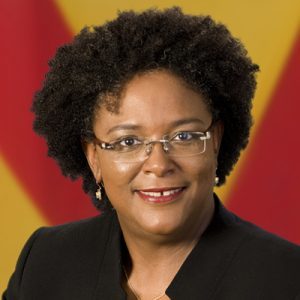

The Honourable Mia Amor Mottley, Q.C., M.P., became Barbados' eighth and first female Prime Minister on May 25, 2018. Ms. Mottley was elected to the Parliament of Barbados in September 1994 as part of the new Barbados Labour Party Government. Prior to that, she served as one of two Opposition Senators between 1991 and 1994. One of the youngest persons ever to be assigned a ministerial portfolio, Ms. Mottley was appointed Minister of Education, Youth Affairs and Culture from 1994 to 2001. She later served as Attorney General and Deputy Prime Minister of Barbados from 2001 to 2008 and was the first female to hold that position. Ms. Mottley is an Attorney-at-law with a degree from the London School of Economics, specialising in advocacy. She is also a Barrister of the Bar of England and Wales. In 2002, she became a member of the Local Privy Council. She was also admitted to the Inner Bar, becoming the youngest ever Queens Counsel in Barbados.
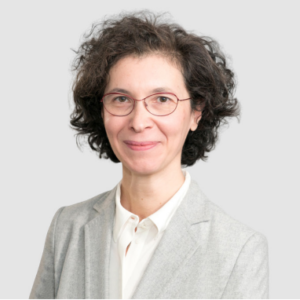

Laura Cozzi (@Laura_Cozzi_) was appointed the Agency’s Chief Energy Modeller in 2018. As Chief Energy Modeller Ms. Cozzi oversees the Agency’s work on outlooks and forecasts and is in charge of overall consistency of modelling work and resulting messages. Ms. Cozzi is also Head of the Demand Outlook Division with responsibility of producing the annual World Energy Outlook, the IEA flagship publication. The Division produces medium to long term energy demand, efficiency, power generation, renewables and environmental analysis for the World Energy Outlook and other publications.
Ms Cozzi joined the IEA in 1999, and has been leading several editions of the Outlook, and has been co-author of multiple editions of the report. Prior to joining the IEA, Ms. Cozzi worked for the Italian energy company ENI S.p.A. She holds a Master Degree in Environmental Engineering (from Polytechnic Milan) and a Master Degree in Energy and Environmental Economics (from Eni Corporate University).
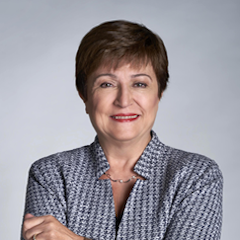

Kristalina Georgieva currently serves as Managing Director of the International Monetary Fund, a position she was selected for on September 25, 2019 and has served as since October 1, 2019.
Before joining the Fund, Ms. Georgieva was CEO of the World Bank from January 2017 to September 2019, during which time she also served as Interim President of the World Bank Group for three months.
Previously, Ms. Georgieva helped shape the agenda of the European Union while serving as European Commission Vice President for Budget and Human Resources. In this capacity she oversaw the EU’s €161 billion (US $175bn) budget and 33,000 staff, as well as the EU’s response to the Euro Area debt crisis and the 2015 refugee crisis. Before that, she was Commissioner for International Cooperation, Humanitarian Aid and Crisis Response, managing one of the world’s largest humanitarian aid budgets.
Ms. Georgieva began her career in public service at the World Bank as an environmental economist in 1993. After serving for 17 years, and in many senior positions, including Director for Sustainable Development, Director for the Russian Federation, Director for Environment, and Director for Environment and Social Development for the East Asia and Pacific Region, her career culminated in her appointment as Vice President and Corporate Secretary in 2008. In this role, she served as the interlocutor between the World Bank Group’s senior management, its Board of Directors, and its shareholder countries.
Ms. Georgieva serves on many international panels including as co-Chair of the Global Commission on Adaptation, and as co-chair of the United Nations Secretary-General’s High-Level Panel on Humanitarian Financing. She has authored and co-authored over 100 publications on environmental and economic policy, including textbooks on macro- and microeconomics.
Born in Sofia, Bulgaria, in 1953, Ms. Georgieva holds a Ph.D in Economic Science and a M.A. in Political Economy and Sociology from the University of National and World Economy, Sofia, where she was an Associate Professor between 1977 and 1993. During her academic career, she was visiting fellow at the London School of Economics and at the Massachusetts Institute of Technology.
In 2010, she was named “European of the Year” and “Commissioner of the Year” by European Voice in recognition for her leadership in the EU’s response to humanitarian crises. In October 2020, she received the Atlantic Council’s Distinguished International Leadership Award in acknowledgement of exceptional and distinctive contributions during her career of public service.
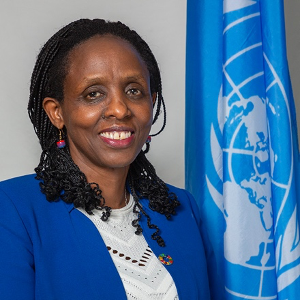

As the UN Secretary-General’s Special Envoy, Dr. Kalibata works with the United Nations system and key partners to provide leadership, guidance and strategic direction towards the 2021 Food Systems Summit. She is responsible for outreach and cooperation with key leaders, including governments, to ensure the Summit serves as a catalytic process within the Decade of Action to improve food systems around the world to deliver on the Sustainable Development Goals (SDGs) and Paris Agreement.
Born in Rwanda to smallholder farmers displaced during the struggle for independence in the early 1960s, Dr. Kalibata grew up at a refugee camp in Uganda, where her parents grew beans and maize, and kept cows. The education of Dr. Kalibata and her siblings was funded through the family’s income from agriculture, ultimately allowing her to study entomology and biochemistry at Makerere University before earning her PhD from the University of Massachusetts Amherst.
After graduating, Dr. Kalibata joined the International Institute of Tropical Agriculture (IITA) at Kawanda Agricultural Research Institute, where she started a career as a research scientist through a combination of research and study between IITA and Makerere University, and the IITA and University of Massachusetts, before returning to Rwanda to become the Minister of Agriculture and Animal Resources (MINAGRI) from 2008 to 2014. In this time, Dr. Kalibata drove programs that supported smallholders like her father and helped the country recover from continued impact of the 1994 genocide to food security.
The success of Dr. Kalibata’s tenure as agriculture minister contributed towards moving her country from a food insecure to a food secure status, becoming a reference point for other countries that sought to deliver agriculture transformation.
Since 2014, Dr. Kalibata has also served as President of the Alliance for a Green Revolution in Africa (AGRA), where she leads the organization’s efforts with public and private partners to ensure a food secure and prosperous Africa through rapid, sustainable agricultural growth, improving the productivity and livelihoods of millions of smallholder farmers in Africa.
Dr. Kalibata has a distinguished track record as an agricultural scientist, policymaker and thought leader. She has been awarded the Yara Prize, now the Africa Food Prize; an Honorary Doctorate from the University of Liège; an Honorary Doctorate from McGill University; and the Public Welfare Medal of the National Academy of Sciences for her work to drive Africa’s agricultural transformation through modern sciences and effective policy thereby improving livelihoods of smallholder farmers.
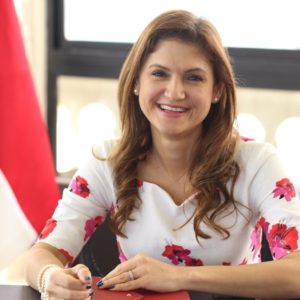

Erika Mouynes is the Minister of Foreign Affairs of the Republic of Panama. She has also served as Vice Minister of Multilateral Affairs and Cooperation and Chief of Staff of the Ministry of Trade and Industry, under two administrations. During her time at the Ministry of Trade and Industry, Mouynes served on the negotiating team responsible for the US-Panama Free Trade Agreement.
Prior to her role in government, Minister Mouynes worked at a leading global law firm in New York. She also managed the business and legal affairs of a multi-billion-dollar investment company in her role as Chief Legal Officer.
Mouynes has served on the board of several publicly traded companies, as well as women-focused not-for-profit organizations.
This past year she led a team of Panamanian experts who successfully designed and negotiated the country’s vaccine portfolio based on scientific criteria, making it one of the first countries in Latin America to secure vaccines for its entire population, with Pfizer as the main provider.
She is also the head of “Mission Panama” a governmental strategy to raise international visibility of the country’s initiatives and mission-driven investments which are transforming its economy and have enabled Panama to achieve carbon negative status.
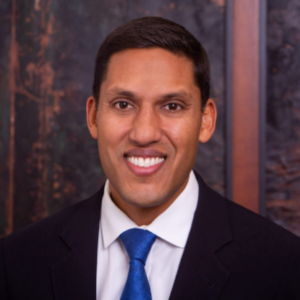

Dr. Shah serves as President of the Rockefeller Foundation, a global institution with a mission to promote the well-being of humanity around the world. The Foundation applies data, science, and innovation to improve health for women and children, create nutritious and sustainable food systems, end energy poverty for more than a billion people worldwide, and enable meaningful economic mobility in the United States and around the world.
In 2009, he was appointed USAID Administrator by President Obama and unanimously confirmed by the U.S. Senate. Dr. Shah reshaped the $20 billion agency’s operations in more than 70 countries around the world by elevating the role of innovation, creating high impact public-private partnerships, and focusing US investments to deliver stronger results. Shah secured bipartisan support that included the passage of two significant laws – the Global Food Security Act and the Electrify Africa Act. He led the U.S. response to the Haiti earthquake and the West African Ebola pandemic, served on the National Security Council, and elevated the role of development as part of our nation’s foreign policy. Prior to his appointment at USAID, Shah served as Chief Scientist and Undersecretary for Research, Education and Economics at the United States Department of Agriculture where he created the National Institute for Food and Agriculture.
Shah founded Latitude Capital, a private equity firm focused on power and infrastructure projects in Africa and Asia and served as a Distinguished Fellow in Residence at Georgetown University. Previously, he served at the Bill & Melinda Gates Foundation, where he created the International Financing Facility for Immunization which helped reshape the global vaccine industry and save millions of lives.
Raised outside of Detroit, Michigan, Dr. Shah is a graduate of the University of Michigan, the University of Pennsylvania School of Medicine, and the Wharton School of Business. He has received several honorary degrees, the Secretary of State’s Distinguished Service Award, and the U.S. Global Leadership Award. He is married to Shivam Mallick Shah and they have three children.
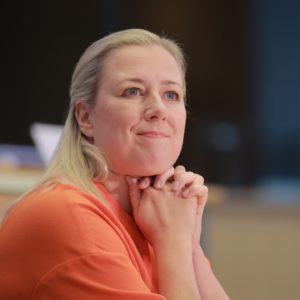

As European Commissioner for International Partnerships, Ms Jutta Urpilainen oversees the European Commission’s work on international cooperation and sustainable development. Before joining the Commission, Ms Urpilainen served as a Member of the Finnish Parliament from 2003 to 2019. In 2008, she became the first woman leader of the Social Democratic Party of Finland. From 2011 to 2014, she served as Finland’s Deputy Prime Minister and Finance Minister. During that time, she became closely involved in development issues, joining the Development Committee of the World Bank Group and IMF and chairing the Finnish National Commission on Sustainable Development. She served as the Foreign Minister’s Special Representative on Mediation (2017-19) and chaired the Finnish National Commission for UNESCO (2015-18).
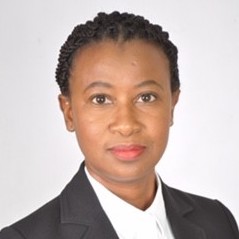

Safiatou Bah, a national of Guinea, was appointed IFAD Country Programme Officer in Conakry, Guinea in April 2019.
Since she joined IFAD, as Programme Officer, Safiatou has demonstrated technical expertise and credibility in country portfolio management in Guinea. She contributed to maintain the standards for IFAD’s competence in development at the field level. In collaboration with other members of the UN country team, bi-lateral development agencies, NGOs and country programme counterparts Safiatou is working with her colleagues in West Africa to establish, maintain relationships and project the image of IFAD as a credible/reliable partner striving for harmonization of development activities.
Safiatou oversees IFAD operations in the country through the implementation of the 120 million USD agricultural development project financed by IFAD, along with the OPEC Fund and the Arab Development Bank. The project, AgriFARM aims to sustainably increase the revenues of rural households and build their resilience to external shocks.
Prior to joining IFAD Safiatou was Head of Private Banking for Banque of Dakar in Senegal. Prior to this, she worked as Operations Associate at CFM (Capital Fund Management) in Paris, France.
Safiatou possesses a Master’s Degree in Management Control and Business Performance from ESCP European Business School in Paris.
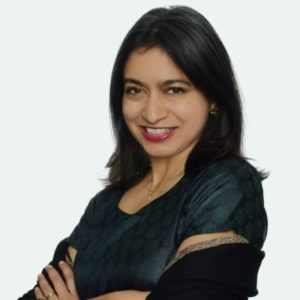

Chandrika Bahadur is the President of the SDSN Association. Previously she was Director of Education Initiatives at the UN SDSN. From 2008-2011, she was advisor to the Chairman and Managing Director at Reliance Industries, where she helped set up Reliance Foundation, a non-profit philanthropic foundation focusing on areas of education, health, rural development, and urban renewal.
From 2001-2008, Chandrika worked with the United Nations in different roles. In her last assignment, she was a Policy Advisor at UNDP’s Bureau for Development Policy in New York, working in Africa to help Ministries of Finance and Planning align their strategies to the Millennium Development Goals (MDGs), across 20 countries. From 2003-2006, she was part of the leadership team of the UN Millennium Project, an advisory group convened by the then UN Secretary-General Kofi Annan to recommend strategies for the MDGs. From 2001-2002 she worked on trade and HIV and AIDS programs at the United Nations. She has prior teaching experience at Harvard and Columbia universities.
Chandrika holds a Masters degree from the John F. Kennedy School of Government, Harvard University, an MBA from the Indian Institute of Management, Ahmedabad, and a BA (Honours) in Economics from St. Stephen’s College, Delhi University.
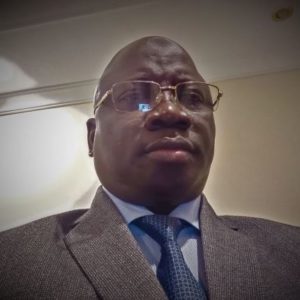

Mr. Ceesay is Global Lead Rural Development Specialist in the Islamic Development Bank (IsDB). He has more than 35 years of work experience in various agencies including 8 years of working with UNDP as UNV Program Officer in Angola, Yemen and East Timor respectively. From March 2008-November 2010 he served as Operations Manager with The Gambia Women’s Finance Association (GAWFA). A holder of master’s degree in Rural Development Management (MRDM) from the University of Khon Kaen in Thailand. He holds an Advance Diploma in Modern Management and Administration from Cambridge International Institute in the United Kingdom and bachelor’s degree in Integrated Rural Development, Pan African Institute for Development West Africa (PAIDWA), Republic of Cameroon.
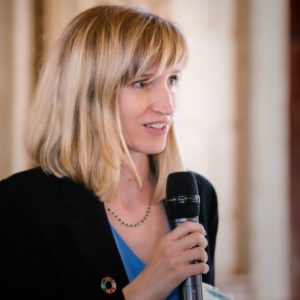

María Cortés Puch is the Vice President of Networks of the UN Sustainable Development Solutions Network.
She joined SDSN in 2013 and currently leads its efforts to build a global network of universities, research centers and civil society organizations that pursue sustainable development innovation locally through research, public education, executive training, demonstration projects, convening of social stakeholders and incubation of solutions.
Prior to joining the SDSN, María worked for UNESCO at the Science Policy and Sustainable Development Division for two years. Previously, she coordinated the European energy and transport programs at the Polytechnic University in Madrid, and worked for two years as a Scientific Officer at the Spanish Office for Science and Technology in Brussels, analyzing EU policies for international cooperation, transport and energy. She began her professional career with the National Institute of Aerospace Technology in Madrid as a Technology Transfer Officer.
Maria holds a Master’s Degree in International Affairs from Columbia University (Fulbright scholar) and BSc. and MSc. degrees in Physics from the Complutense University in Madrid (with one year at Paris VII as an Erasmus scholar). She currently lives in Madrid with her family.
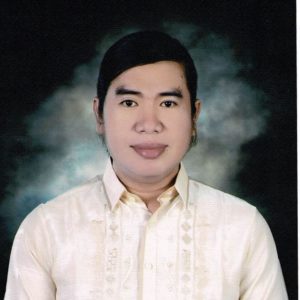

George de la Cruz is both a licensed nurse and teacher. He has been in the teaching force for 18 years (five years as Senior High teacher at Handumanan National High School-Division of Bacolod City); 13 years of aggregate experience in the Higher Education Institutions (taught for Business Education, Teacher Education, and Criminology students).
As a nurse, he served as Clinical Instructor/Preceptor for 12 years and assumed as two-time faculty president of STI-West Negros University (STI-WNU), College of Nursing. At the same time, he served as faculty vice president at Central Philippines State University (CPSU)-Victorias City Extension Campus, and Handumanan National High School (HNHS), respectively. To date, he sits as District Board Representative for the Bacolod City Public School Teachers Federation (BCPSTF).
Relatedly, as a teacher-educator, among his exemplary recognitions and awards include the Most Outstanding Teacher – District IV, Division of Bacolod City; Most Outstanding Teacher nominee for PRAISE Award – Division of Bacolod City; consistent Herald Award and Outstanding Club Adviser (school level); consistent Community Excellence and Leadership Award/ Merit; Most Outstanding Club Adviser – Division of Bacolod City; Teacher Award – Alumni Association of West Negros College; Most Outstanding Alumni given by the Junior Philippine Entrepreneurs Society – Bacolod City College; others. He is one of the Pool of Trainers, learning resource materials writer, researcher, associate editor of SDO-produced magazine, editor and part of the technical working group and Quality Assurance team for Social Sciences’ lesson exemplars, modules, in the Division of Bacolod City.
Dr. De La Cruz is a first batch of scholars of the Global Schools Program for its cohort training, an initiative of the United Nations Sustainable Development Solutions Network (SDSN) in support of UNESCO’s Global Action Program on Education for Sustainable Development (ESD). He is among the 180 educators from 50 countries who were selected to become Global Schools Advocates and trained for five months for localizing and integrating global citizenship, sustainability, and 21st-century skills into school communities.
For civic works, he is a staunch advocate for Sustainable Development Goals, Global Citizenship Education, Cultural Education, Human Rights, Community Development, Population Management Development. As a proof of his dedication for community action, he organized the Barangay Felisa Community Micro Business Enterprise (BFCMBE) which is composed of 332 women whose means of livelihood is through scavenging in the city’s 10-hectare sanitary landfill. Barangay Felisa is the city’s host community of its dumpsite. Hence, Project Basura, was established benefiting the scavenger-women as project recipients with a seed fund of P200,000 that the National Commission for Culture and the Arts (NCCA) had granted. Also, as an advocate, he is the founder of BAHAG-Pilipinas or Barangay Association of Health Advocates Group.
Moreover, Dr. De La Cruz is a journalist/desk editor for 16 years. He is a stringer of the Philippine News Agency (PNA) under the Office of the Press Secretary thru the News and Information Bureau, Office of the President – Malacan Palace.
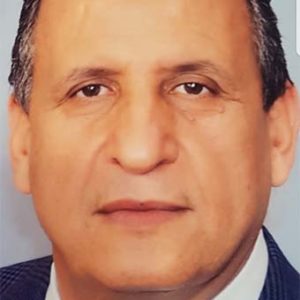
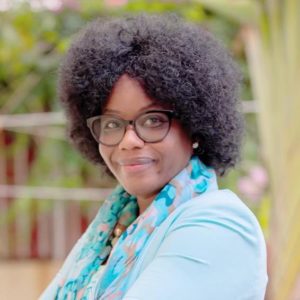

Oulie Keita is the Executive Director for the YouthConnekt Africa (YCA) Hub (a programme created by UNDP and the Government of Rwanda) based in Kigali, Rwanda. Prior to joining the YCA, she worked as the Francophone West Africa Director at ONE Campaign for the last five years, based in Dakar, Senegal. She established the Francophone Africa regional office for the ONE Campaign. There she led the development and implementation of ONE’s Africa strategy since 2015. Oulie has 17 years wealth of experience and expertise in the domain of international development, particularly in policy and advocacy work on women and youth empowerment, governance, peace and security. Prior to joining ONE in 2015, Oulie worked as the Program Director for Freedom House in Mali for 3 years, where she established the West Africa Office for Freedom House and contributed to the development of a national strategy on building the foundations for Transitional Justice and national reconciliation. During her tenure in Mali she held high level advocacy efforts for the respect of women’s rights/human rights, youth empowerment, access to development finance and truth-justice-reconciliation in a post conflict environment.
Oulie is an UN Roster as Peace and Development Advisor and has worked for UNDP as such in many countries, including, DRC, Cote d’Ivoire, Chad, and Mali. Oulie is a PhD Candidate at the University of Maryland working on her doctoral and holds a Masters’ degree in Non-profit Management from the University of Regis in Denver, USA; A Bachelor’s degree in International Relations from the University of Maryland, USA; A certificate in Program Management; a certificate in Peacebuilding and Gender and a certificate in Security Sector Governance from the European College for Peacebuilding in Austria.
Over the last 17 years in her professional career, she has been active in various capacities with a focus on women/youth empowerment in the areas of governance, peace, security and development in Africa. Some of the organizations that she has worked for and collaborated with include, the United Nations, USAID, the West Africa Network for Peacebuilding (WANEP), the African Security Sector Network (ASSN), the Woodrow Wilson International Center Africa Program, the Millennium Challenge Corporation (MCC), the Millennium Promise Alliance, the United States Department of Agriculture International Cooperation, Femmes Africa Solidarity (FAS), ECOWAS, and the African Union. Throughout her career, Oulie has conducted advocacy and direct lobby engagements, addressing high-level panels such as the United Nations Security Council, the African Union Commission, the World Bank Group as well as Heads of States and Ministers. Oulie is bilingual, fluent in both English and French. She has also served her native country as Deputy Chief of Staff of the Prime Minister’s Office.
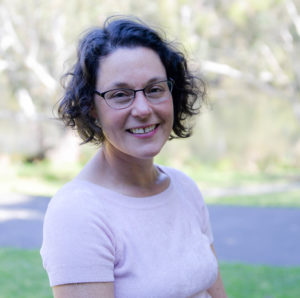

Dr. Tahl Kestin is a Project Manager at the Monash Sustainable Development Institute (MSDI), and Network Manager for the Sustainable Development Solutions Network (SDSN) Regional Network for Australia, New Zealand and Pacific, which is hosted by MSDI.
As Network Manager, Tahl works with SDSN member institutions and other organisations in the region on initiatives to support the achievement of the Sustainable Development Goals (SDGs), in particular through national implementation and mobilising the university sector. Tahl led the writing of the globally renowned guide Getting Started with the SDGs in Universities, co-led the organization of the Australian SDGs Summits in 2016 and 2018, and facilitated university input into Australia’s Voluntary National Review. She also works with the SDSN Secretariat to run global SDSN activities relating to SDGs and universities, including a guide that will be published in September on Accelerating Education for the SDGs in Universities.
At MSDI, Tahl also contributes to the Institute’s extensive SDG-related activities, including Transforming Australia: SDG Progress Report. Prior to her current role, Tahl managed a range of interdisciplinary initiatives at MSDI, including Climate Scientists Australia, the Australian Bushfire Arson Prevention Initiative, and the Indigenous Communities and Climate Change Program.
Previously, Tahl held roles at the Technical Support Unit for Working Group I of the Intergovernmental Panel on Climate Change (IPCC); ICLEI-Local Governments for Sustainability – Oceania; and the International Research Institute for Climate and Society (IRI) at Columbia University in New York.
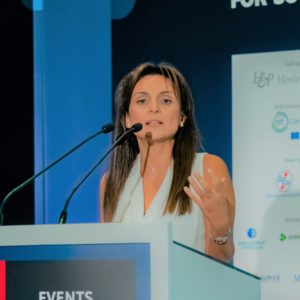

Professor Dr. Phoebe Koundouri holds a PhD and MPhil in Economics and Econometrics from the University of Cambridge (UK). She is Professor (Chair) of Sustainable Development (Economics and Econometrics) at the School of Economics, Athens University of Economics and Business (Greece) and she is the elected President of the European Association of Environmental and Natural Resource Economists (EAERE) (with more than 1200 scientific member institutions, from more than 75 different countries). Prof. Koundouri is listed in the 1% of most-cited women economists in the world, with 15 published books and more than 250 published scientific papers.
Prof. Phoebe Koundouri is also the Founder and Scientific Director of the Research laboratory on Socio-Economic and Environmental Sustainability (ReSEES) at the Athens University of Economics and Business and an affiliated Professor at the ATHENA Research and Innovation Center (Greece) where she directs EIT Climate-KIC Hub Greece of the European Institute of Innovation and Technology. She is also the co-chair of the United Nations Sustainable Development Network Greece (UN SDSN Greece), chair of the Scientific Advisory Board of the International Centre for Research on the Environment and the Economy (ICRE8) and chair of the scientific advisory board of the European Forest Institute.
In the past, Professor Koundouri has held academic positions at the University of Cambridge, University College London, the University of Reading and the London School of Economics. She acts as an advisor to the European Commission, World Bank, EIB, EBRD, OECD, UN, NATO, WHO, numerous national and international foundations and organizations, as well as national governments in all five continents. Notably she is currently member of the drafting Priministerial Committee for 10-year development plan for Greece, as well as in the Climate Change Committee of the Greek Ministry of Environment and Energy. She holds a global leadership role in the UN SDSN for European Green Deal (EGD) implementation, Sustainable Shipping and Ports, 4-seas Blue Growth Initiative and is leader (together with Prof. Jeff Sachs) of the Senior Working Group on Transformation Pathways for the implementation of EGD. She is also a member of the CEPR (Center for European and Policy Research) Network (RPN) on Climate Change and a member of the New Lancet Committee on COVID-19 and the Sustainable Development Institute of the University of Columbia (USA).
Since 1997, she has coordinated more than 77 interdisciplinary research projects and has attracted significant competitive research funding. Professor Koundouri and her large interdisciplinary team have produced research and policy results that have contributed to accelerating the research commercialization for the sustainability transition in Europe, as well as shaping European policies. Over the last two decades, Professor Koundouri has given keynote and public lecturers all over the world and received various prizes for academic excellence.
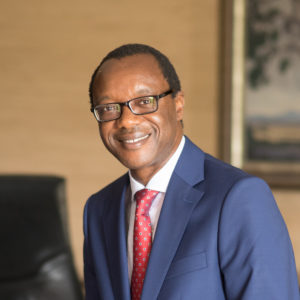

Professor Tawana Kupe has served as the Vice-Chancellor and Principal of the University of Pretoria since January 2019. He holds a BA Honours and Masters degree in English from the University of Zimbabwe, and a DPhil in Media Studies from University of Oslo, Norway. Prof Kupe has been the Africa Co-Chair of the Australia Africa Universities Network (AAUN) since 2019 and an Honorary Doctorate in Humanities was bestowed on him by Michigan State University in December 2019. Prof Kupe has a notable publication record, having authored journal articles, books and book chapters in his main discipline, Media Studies and Journalism. Over the years, Prof Kupe has played a key role in the establishment of select new innovative initiatives at Wits, of which the latest in 2018 the Africa Centre for the Study of the United States. He is an active member of several Civil Society Organisations, including the AmaBhungane Centre for Investigative Journalism and is Chairman of the Board of Media Monitoring Africa since 2005. He has been a judge and convenor of multiple major journalism awards in South Africa. He is also the Co-Chairperson of the Kifra Prize Selections Committee coordinated by the African Institute for Mathematical Sciences (AIMS) in Rwanda from 2020. He serves on the board of a major private company and is a member of Council of the International Association of Media and Communication Research (IAMCR) and The Association of Commonwealth Universities (ACU) Council. Professor Kupe is a popular invited speaker, academic expert and regular commentator on issues of media performance on radio, television and the print media in South Africa for local and international media. He has also been a columnist for several newspapers and magazines in South Africa.
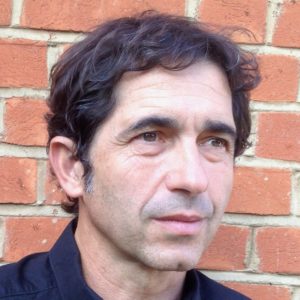

Carlos Mataix is a professor in the School of Industrial Engineering at the Universidad Politécnica de Madrid (UPM), and director of UPM’s Centre for Innovation in Technology for Human Development (itdUPM). He began his university career in 1991, receiving a scholarship from the Ministry of Education for his doctoral thesis, completed in 1994 on the study of small businesses in the informal sector. Since then, his career has allowed him to not only observe, but also participate in the organizational design and change management of various organizations.
Carlos has always been interested in strengthening the university’s relationship with civil society, having been the assistant director of student affairs and university extension of the School of Industrial Engineers at the UPM. In terms of public administration, he joined the Office of the Director at the Spanish Agency for International Development Cooperation (AECID) in 2008, and was tasked with launching the Planning and Quality Unit. Since then he has worked as an expert adviser to the cooperation council.
Within the third sector, Carlos co-founded Ingeniería Sin Fronteras (Engineers Without Borders) and is Vice President of the Coordinator of Spanish Development NGOs. He is also a board member and advisor for various Spanish and international civil society organizations. In the private sector, Carlos directs business chairs, is a member of the Iberdrola stakeholder council, and an advisor to corporate foundations, such as Fundación Carasso, Cotec and the Spanish Network for Sustainable Development (REDS).
Carlos served as a visiting professor at the Institute of Development Studies (IDS) in 2013, and in the Science Policy Research Unit (SPRU) in 2016, both at the University of Sussex, as well as shorter periods at Latin American and European universities. During this time, Carlos learned to appreciate stronger connections, the difficulties in tackling working in silos, and the potential for collaboration. As a result, his work today is centered on the design and management of organizational contexts that promote collaboration between organizations and knowledge. The processes of sociotechnical transformation required in the 2030 Agenda of the Sustainable Development Goals (SDGs) call for new organizational infrastructures, based on networks and partnerships. Public universities are also called upon to be key actors in this process.


Santha Nair is an English Teacher at a vernacular school in Perak, Malaysia. She was the former Head of the English Department and currently holds the position of Head of the Arts Department. She is the Master Trainer for Lower Perak District for the CEFR Aligned English Language Curriculum. She graduated with a Bachelor of Teaching (Hons) in TESL for Primary School and currently doing her MBA in Sustainable Development Management. She is an alumnus for the Young South East Asian Leadership Initiative (YSEALI) as she graduated from the YSEALI Women’s Leadership Academy 2016. She has been an active member of YSEALI until 2018 before venturing the youth leadership through sustainability through the Commonwealth.
She was an open delegate representing Malaysia at the Commonwealth Youth Forum during CHOGM 2018 and Harvard Projects of Asian and International Relations (HPAIR), under the sustainability track, in which she worked alongside sharing ideas through the Blue Charter Project with Commonwealth Youth. She was the Community Engagement Co-lead for the Youth Delegate Program Cohort 2 (2020). She was also a former mentor and SDG 4 Mastermind Lead for Cohort 3 and 4, under the same program. Early September 2021, she has started her new role as the Disruptor Track Co-lead under YDP. She has worked alongside Global Schools Program as one of the advocates class 2019-2020 and a mentor for the Southeast Asia GSAs.
As the Program Manager com Co-founder for DeRia, she loves traveling, art and music plus high fashion. She has won a grant under the British High Commission Kuala Lumpur with Ecoknights in conjunction with Cop26 conference, Glasgow. Her team, DeRiA has finally published their first Environmental Education Playbook Curated by teachers for teachers. She loves teaching sustainability through English.
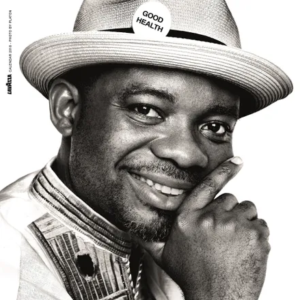

Chief Nathaniel Ebo Nsarko is a Fellow of the American Academy of Project Management (AAPM), and holds a Masters in Project Management (MPM), MBA-PH, MCH, BFA, DIP-TEC. Chief Nathaniel Ebo Nsarko is the Executive Director of Millennium Promise, Chief Advisor to UN Youth, Ghana, and President of the Coffee Federation of Ghana. Nsarko has over 17 years of practical field experience as a community health and development communication expert, having held various managerial positions at the national, regional, district, and community levels in Ghana. As a communications and sustainable project concept designer, Chief Nat has been a social development consultant to Morehouse College Atlanta, Georgia, USA.
His rich experience has earned him deep involvement with Ministries of Health, Employment, Education, Gender, and local governments in Ghana over the years. He has worked directly and indirectly with five successive Ministers of Health. Chief Nat’s extensive knowledge, practical experience, unparalleled understanding of the socio-cultural dynamics in Ghana, great negotiation and lobbying skills, and project implementation skills are verified by his dual position as the Executive Director for Millennium Promise and Country Director for the ImCHW Campaign. He has been a principal investigator for several research programs including CHW research in Ghana, a Tele-Dentistry research program with Boston University, the Duke Global Health Institute, and a North Carolina – MP research program. He also heads the implementation of Teleagric in Ghana and the corporate affairs directorate of Kuapa Kokoo Union-Ghana, a cooperative of over 100,000 farmers in Ghana. His long standing relationship with the Ministry of Health and Ghana Health Service, as a lead scout for Ministers of Health and the Regenerative Health and Nutrition department under the Policy Planning, Monitoring and Evaluation Unit of the Ministry of Health Ghana from 2004 -2011, offered him a great opportunity to serve on several ministerial committees in various capacities. He was the lead consultant for the training and deployment of over thirty-one thousand Health Promotion Assistants under the Better a Ghana Management – MoH program across the country.
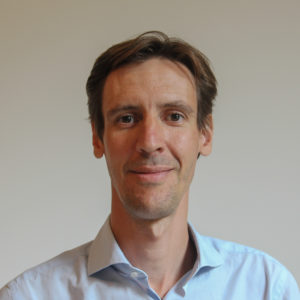

Antoine is a specialist in the provision of trade-related technical assistance to developing countries and has worked over 10 years on how to leverage trade policy at the national, regional and multilateral levels to foster sustainable development. His work at the IEEP now focuses on the greening of the EU’s trade policy and the coherence of the EU’s internal and external policies related to trade and sustainable development. He works notably on the environmental and social provisions embedded in EU Free Trade Agreements and on how trade may support climate-related policies such as biodiversity or circular economy worldwide. Antoine holds a Master in European Politics from the Institute of Political Studies of Rennes.
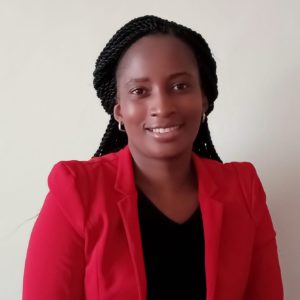

Lilian is an early years educator at CITAM Schools. An ESD in early years enthusiast, Lilian firmly believes that it is in early childhood that fundamental attitudes and values are formed, therefore young children are the best advocates in matters ESD. Lilian is an alumnus of SDG Academy in Education for Sustainable Development in early years and Kenya National Committee President of the World Organization for Early Childhood Education (OMEP), a body that strongly advocates ESD as one of its pillars. In 2017, Lilian received commendation for Special Achievement in ESD from World OMEP. In 2016 she became sole African recipient of travel award to South Korea, following her ESD, Play and Resilience project, which was OMEP World’s contribution to UNESCO’s Global Action Plan. A play advocate, she’s the founder of Toy Library Association of Kenya and board member at the International Toy Library Association (ITLA) as the African Link.
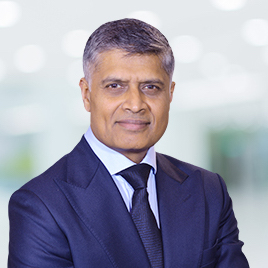

Ketan is an investor, strategist, and author over a 30-year career in industry, advisory, investment banking and investing. He was formerly the head of the Strategic Group at Goldman Sachs. He has worked extensively in the US, Europe, China, Japan, and India, providing strategic counsel to leaders in government and business. He co-founded and leads the investment firm, Greater Pacific Capital (GPC), which invests in high growth enterprises making an impact locally and internationally, profitably and sustainably. He leads the ‘Capital as a Force for Good’ initiative in support of the UN Secretary General’s roadmap for sustainable development and founded the ‘Force for Good’ (F4G) platform. Ketan’s experience includes global industry and financial markets, themes and challenges, diverse cultures and strategic affairs, built through making investments, handling business and government relations, developing policy perspectives and complex issues resolution across various countries and continents. Leading GPC, and the F4G platform, he chairs the investment committee, manages strategy, key relationships and positioning. GPC invests in digital, healthcare and financial inclusion, with local and international scope. He also leads the research work, which focuses on ideas and policies to engender peace, prosperity and freedom, including the transition of civilizations, the world order and slums and mass inclusion. Ketan worked with the UN-World Academy of Art and Science Global Leadership Initiative where he headed the future of finance initiative, currently chairing the WAAS Global Referendum initiative. He is a member of the working group of the UN SDSN Senior Working Group on Joint Implementation of EGD and SDGs.
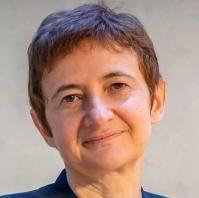

Laura Piovesan works at the European Investment Bank (EIB), the EU’s long-term financing institution headquartered in Luxembourg. She is currently Director of the Bank’s Sustainability & Quality Management Department within EIB’s Projects Directorate, with responsibilities on policymaking, notably in the fields of climate, social and environmental sustainability, additionality and impact, as well as on ensuring the quality of projects and the application of EIB standards during the project cycle.
Before that, she was Director of the Innovation and Competitiveness Department that is responsible for advisory and due diligences of investments in R&D intensive sectors, including the engineering, automotive, chemical, pharmaceutical and telecoms industries, as well as in the sectors of education, health and digital infrastructures.
Laura is a graduate in Chemical Engineering from the University of Padova, Italy. Prior to joining the EIB she worked for eight years for an Italian engineering company, first as Research Scientist and then as Industrial Economist.
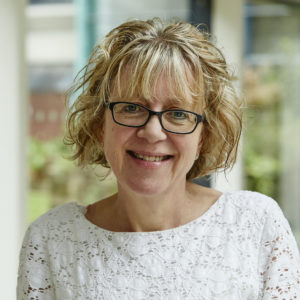

Liz Price is Professor of Environmental Education and serves as Academic Institutional Lead for the Environment at Manchester Metropolitan University, providing strategic direction for environmental sustainability across learning, teaching and research and for accelerating education for the SDGs.
She is Associate Head of School of the European School of Sustainability Science and Research, Chair of the Committee of Heads of Environmental Sciences, Council Member of the Institution of Environmental Sciences and a member of the QAA and Advance HE Advisory Group reviewing the Education for Sustainable Development Guidance for the UK.
Liz is the institutional strategic sponsor and lead for Responsible Futures and representative on the Manchester Climate Change Board and Climate Commission for UK Higher and Further Education Leaders.
She has a degree in Biology from the University of Manchester and a DPhil in Ecology from the University of Sussex, with research interests in education for sustainable development and processes governing plant community composition. She is a Principal Fellow of the Higher Education Academy, a Fellow of the Leadership Foundation, and a Chartered Environmentalist.
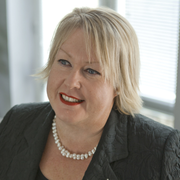

Dr. Wendy Purcell is an Academic Research Scholar with Harvard T.H. Chan School of Public Health, Harvard University since 2016. Her purpose lies in transforming lives through education and research in pursuit of social equity, the knowledge economy and sustainable development. She leads research on global leadership and governance for sustainable transformation in higher education and in various business sectors, directs the Sustainable Development Solutions Group and is Lead Faculty of ENVR-118c Pursuing Sustainability. Wendy is an Emeritus Professor and was President Vice-Chancellor of a UK university (2007-2015), taking it to the top 1% of world universities and 1st ‘green’ UK university. She is a Council Member of the United Nations University, Governing Board Member EELISA of the European University and Member of the Association of American Universities and Colleges. Wendy has authored over 100-publications and is busy writing books on Sustainability and the Sustainable Development Goals and the role of higher education in advancing a world where no one is left behind.


I am a skilled, enthusiastic, passionate, and student-centric ESL tutor/k-12 with 10 years of experience developing lesson plans and curriculum for students of all ages. Classroom management, personalized learning programs, and innovative educational techniques are just a few of my areas of expertise. By teaching students in a wide range of ages and situations, I have honed my communication, creativity, and motivational skills. My inherent passion for fostering collaborative and engaging educational environments has successfully encouraged and developed productive, thoughtful, and accomplished ESL students in Pakistan and now around the globe.
I hold a master’s degree in TESOL and an M. Phil in ELT. I am a licensed Cambridge trainer. (CELTA, TKT module 1,2,3, CLIL, EMI, Train the trainer), currently enrolled in DELTA. I train teachers in Bloom's Taxonomy, PBL and differentiated tasking.
I have worked with top schools in the Education sector of Pakistan namely, Beacon House, The City School and Chand Bagh School.
I am an Educationist and an Entrepreneur, STEM ED Fellow of the Jhumki Basu Foundation New York, National Geographic Certified Educator, Scientix Ambassador (An organization working with 32 Ministries in Europe for the promotion of STEM and STEAM), WLF Ambassador and an Advocate of the Global Schools Program. My core teaching philosophy and pedagogy revolves around critical thinking, design thinking and SDG.
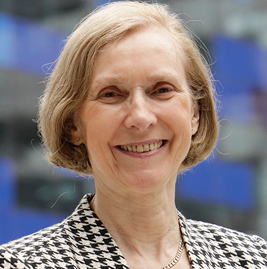

Mary Ritter was CEO (2010-2014) of the EU’s EIT Climate-KIC - Europe’s largest public-private partnership addressing climate change - guiding it from inception to a pan-European cross-sectorial innovation community of >200 (in 2014/15; now >400) partners from academia, business and regional/city government, working to innovate for net zero-carbon prosperity and climate resilience. She is now the KIC’s International Ambassador looking to deploy the full force of European ingenuity beyond the borders of Europe, connecting with and building key climate innovation ecosystems globally for accelerating and scaling impact. In 2015-2016, She established and led a cross-sectorial team in Australia to develop the independent ‘Climate-KIC Australia’ - launched in 2017 and now providing a collaborative innovation platform in the Asia-Pacific region. Her current work focusses on collaboration with innovation ecosystems in California, India and China. She is Professor Emeritus (Immunology) and previous Pro Rector for International Affairs at Imperial College London (2004-2011). She sits and has sat on many international and national boards, currently including: Climate-KIC Australia Governing Board; National Research Foundation Fellowship Evaluation Panel, Singapore and Bernal Institute Advisory Board, University of Limerick, Ireland and until recently the RISE Advisory Group for EU Commissioner Moedas. She is an elected Fellow of the Royal Society for the Encouragement of Arts, Manufactures and Commerce (FRSA), Royal College of Pathologists (FRCPath), Royal Society of Biology (FRSB) and City and Guilds Institute (FCGI). She was awarded an OBE in the 2014 New Year Honours for her services to scientific research and innovation.
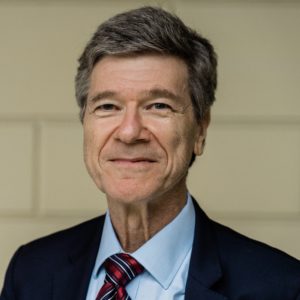

Jeffrey D. Sachs is a world-renowned professor of economics, leader in sustainable development, bestselling author, and syndicated columnist whose monthly newspaper columns appear in more than 100 countries. He is the co-recipient of the 2015 Blue Planet Prize, the leading global prize for environmental leadership, and many other international awards and honors. He has twice been named among Time magazine’s 100 most influential world leaders. He was called by the New York Times, “probably the most important economist in the world,” and by Time magazine, “the world’s best known economist.” A survey by The Economist in 2011 ranked Professor Sachs as amongst the world’s three most influential living economists of the first decade of the 21st century.
Professor Sachs serves as the Director of the Center for Sustainable Development at Columbia University. He is University Professor at Columbia University, the university’s highest academic rank. During 2002 to 2016 he served as the Director of the Earth Institute. Sachs served as Special Advisor to United Nations Secretary-General António Guterres on the Sustainable Development Goals, UN Secretary-General Ban Ki-moon on both the Sustainable Development Goals and Millennium Development Goals, and UN Secretary-General Kofi Annan on the Millennium Development Goals. He is a Distinguished Fellow of the International Institute of Applied Systems Analysis in Laxenburg, Austria.
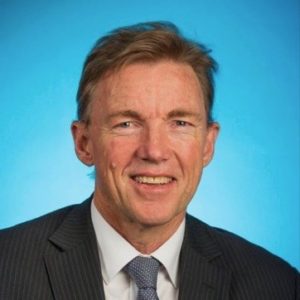

John Thwaites is a Professorial Fellow, Monash University, and Chair of the Monash Sustainable Development Institute and ClimateWorks Australia.
John is Chair of Melbourne Water and a Director of Fair Trade Australia New Zealand. He has been Chair of the Australian Building Codes Board, President of the Australian Centre for the Moving Image (ACMI) and a director of the Australian Green Building Council.
John is the Chair of the National Sustainable Development Council, which has developed the Transforming Australia: SDGs Progress Report 2018. He was previously Chair of the National Sustainability Council an independent Council appointed by the Australian Government, which produced the Sustainable Australia Report in 2013.
He is a Co-Chair of the Leadership Council of the UN Sustainable Development Solutions Network (“SDSN”) launched by the Secretary General of the United Nations to provide expert advice and support to the development and implementation of the Sustainable Development Goals.
In 2013, John was named as one of the 100 Global Sustainability Leaders by ABC Carbon Express. In 2015, he was awarded the “Planning Champion” award by the Planning Institute of Australia and in 2016 was awarded the Richard J Evans Award for excellence in recognition of outstanding contributions to planning in Victoria.
John Thwaites was Deputy Premier of Victoria from 1999 until his retirement in 2007. During this period he held various Ministerial portfolios including Health, Planning, Environment, Water and was Victoria’s first Minister for Climate Change. In these portfolios he was responsible for major reforms in social policy, health, environment and water.
Prior to being elected to Parliament, he was a barrister and Mayor of South Melbourne.
He has degrees in Law (Honours) and Science from Monash University. He is a Fellow Australian Institute of Company Directors.


Julia Zimmerman is an American national who has been living in Vienna since 2013. After receiving her Bachelor’s degree in California, Julia moved to Vienna to work and complete her Master’s degree in International Relations. During her career, Julia has worked as a teacher, journalist and with the international NGO CARE on a project to end child marriage occurring in Nepal and Bangladesh. As a journalist, Julia has had articles published on In Depth News, SDGs for All, and East West Institute on topics related to gender equality, empowerment and security. She is a dedicated advocate and member of the V-Day movement to end gender-based violence globally, organizing events both in the USA and abroad.
Each block will be three hours with one plenary for the first hour and concurrent parallel sessions for the following two hours. We have strived to make our program inclusive to an international audience.
We are having some technical difficulties with our online program. In case you are unable to access the sessions, we have listed them below and will continue to update this until it is fixed:
3A: Entrepreneurship Models to Advance Sustainable Solutions
3C: Water-Energy-Food Nexus Research Impact and Stakeholder Engagement
3D: Partnerships and the Sustainable Development Goals
3E: Language of Sustainable Development: Making Sense of the 2030 Agenda Within and Across Contexts
Each block will be three hours with one plenary for the first hour and concurrent parallel sessions for the following two hours. We have strived to make our program inclusive to an international audience.
The Amazon Day has been conducted since 2015 by Sustainable Development Solutions Network (SDSN) Amazonia and Foundation for Amazon Sustainability (FAS) periodically during the International Conference on Sustainable Development (ICSD) organized by the SDSN Global at Columbia University. The event and the conference are held within the framework of Climate Week and the United Nations General Assembly in September in New York City.
In its fourth edition, and given the pandemic of the new coronavirus, Amazon Day will be held on a virtual basis as a side event of the International Conference on Sustainable Development (ICSD). The event with the theme “Towards a Sustainable Amazon” will address the main findings and recommendations of the Scientific Panel for the Amazon (SPA) for the conservation of Amazon biome. The event will also feature two solutions sessions, a session on climate solutions, highlighting the contribution of the Amazon to the Conference of the Parties (COP 26) and a final session presenting solutions for the conservation of the largest hydrographic basin on the planet and its water resources. The event, held in partnership with SDSN Amazonia, the Foundation for Amazon Sustainability (FAS) and SDSN Global.
**Separate Registration Required**
The Sustainable Development Goals (SDGs), also known as the Global Goals, were adopted by all the member states of United Nations in 2015, as a “Universal Call” to action to end poverty, protect the planet and ensure that all people enjoy peace and prosperity by 2030.
India, as a prominent developing country, has played an important role in shaping the SDGs. The country’s national development goals are mirrored in the SDGs. As such, India has been effectively committed to achieving the SDGs even before they were fully finalized. The SDG India Index 2020–21 is more robust than the previous editions on account of wider coverage of targets and indicators with greater alignment with the NIF. The 17 SDGs are integrated such that, they recognize that action in one area will affect outcomes in others, and that development must balance social, economic and environmental sustainability. India’s 115 SDG indicators incorporate 16 out of 17 SDGs, with a qualitative assessment on Goal 17, and cover 70 SDG targets. This is an improvement over the 2018–19 and 2019–20 editions of the index, which had utilized 62 indicators across 39 targets and 13 Goals, and 100 indicators across 54 targets and 16 Goals, respectively.
This side event looks to deliberate upon Indian frameworks and their role in shaping the SDGs. As stated by our Honorable Prime Minister. Shri. Narendra Modi, India is giving great priority to our evolving understanding of the social, economic, and environmental linkages that define quality lives for the people. This platform will help to evaluate the national frameworks and review their relevance for the 2030 Agenda.
An emerging international trend in Academic Publishing is aligning scholarly work and publishing with the Sustainable Development Goals. Register for this workshop to find out more. Enroll at https://buff.ly/2WEuX3E
Organized by global MDP faculty members and leaders from the University of Minnesota, USA; Regis University, USA; University of Pretoria, South Africa; and the MDP Secretariat, this group collaborated to develop a dialog on Decolonizing Sustainable Development Education, an ICSD side-event scheduled on September 22, 9:00 am to 10:30 am EST with an optional 30-minute question and answer portion at 10:30 to 11:00 am. Vanessa Andreotti from the Department of Educational Studies at the University of British Colombia will offer the framing remarks at this session.
The panel of MDP faculty members at TERI University, India; Regis University, USA; and the University of Ibadan, Nigeria, with the possibility of one more from the University of Los Andes, Colombia, will explore the decolonization of development education and will offer examples of how MDP programs are addressing this imperative. Margarita Fontecha Tirado (MDP Alumni, University of Florida, USA) will serve as the moderator. This panel will consider how development education programs can effectively spark questions of colonial legacies in development, anti-racist and anti-sexist frameworks for development, alternative visions for development, and establishing equitable collaborations in local and international contexts. The MDP community welcomes the participation of anyone who is interested in this subject. Come and join us!
The United Nations Sustainable Development Solutions Network (SDSN), in partnership with Esri and the National Geographic Society, launched “SDGs Today: The Global Hub for Real-Time SDG Data” in July 2020. SDGs Today aims to advance the production and use of real-time and geo-referenced data for the SDGs with a one-of-a-kind data platform, and education and training resources. The initiative encourages countries, institutions, and civil society members to produce, share and engage with the data to help ensure that we meet the Global Goals by 2030.
SDGs Today aims to provide a snapshot of the state of sustainable development around the world while enabling countries, institutions, researchers, journalists, and civil society members to produce, access, and engage with real-time and timely (updated annually or more frequently) data on sustainable development, obtain geospatial information systems (GIS) training and education resources, and learn how to use the data effectively to drive action towards the 2030 Agenda for Sustainable Development.
Join us on September 22nd to learn what kind of research projects can impact how we measure and monitor progress.
During this session, there will be a two-hour panel of global MDP professionals speaking on Translating Theory to Practice: Global MDP alumni perspectives on the Humanitarian, Development, and Peace Nexus. MDP members from Africa, Asia, Latin America, Europe, and North America will be represented on the panel. In addition, an hour discussion will follow on Envisioning the MDP Student and Alumni Advisory Council (SAAC) with a Meet and Greet immediately following.
The event will include a wide range of stakeholder voices showcasing studies, projects, and curricular resources to promote Education for Sustainable Development (ESD) and Global Citizenship Education (GCE). This half-day workshop will include:
